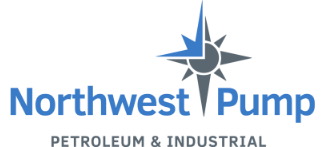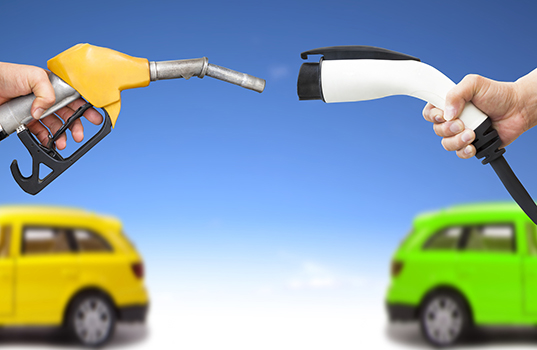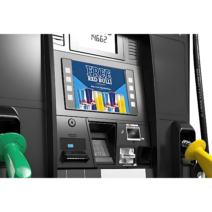Article Written By: Jim Moran, NWP Product Sales Manager
Navigating the exciting future market of EV charging solutions comes with the opportunity to blend current customer’s needs to better serve the market. The future needs of commercial and retail customers require a commitment from their equipment distributors to recognize the “mixed fuels” future when providing solutions for station remodels and tank systems installations, along with the time-consuming EMV upgrades that are taking place today. A transition from liquid fuels to electrons will require a new approach to this new market augmenting a traditional fueling solution.
Electric vehicle sales of 2% today are set to significantly expand in a few years, and commercial fleets and large trucks and buses are expected to transition at an even faster clip as leases mature and fleets turn over. Current Fleet manufacturers offering an EV solution include Arriva, Chanje, Daimler, Gillig, Kenworth, New Flyer, Nissan, Paccar Proterra, Rivian, Tesla, Volvo and Workhorse. This list is sure to grow.

ChargePoint
EV charging solutions is also evolving as battery technology improves to accept faster charging capabilities. This will help make DC Fast Chargers a more attractive option for the EV customer. Home chargers only serve a portion of the fueling needs, even though these needs are being met the majority of the time for current EV owners in the U.S. Some 88% of EV owners “often or always” charge their vehicles at home, according to a J.D. Power study. Owners with permanently mounted Level 2 home-charging stations were most satisfied with their home-charging experience. Parts and labor to install a Level 2 charger typically cost $1,200 to $2,000 (even more if major electrical upgrades are required).*
Most multi-family complexes don’t offer an EV charging station, which opens a big opportunity for convenience store operators to offer this service and create new sales opportunities inside their stores while the charging takes place.
This demand will be brought on by the influx of car manufacturers making EV a bigger part of their current offering. Audi, BMW, Cadillac, Chevrolet, Ford, Honda Hyundai, Jaguar, Kia, Landover, Mercedes Benz, Mitsubishi, Nissan, Rivian, Stellantis, Subaru, Smart, Toyota, Volkswagen and Volvo have incorporated EV into their lineups.
Headlines from inside and outside our industry every week tell us the story of the future today.
Jaguar Land Rover’s Jaguar brand will be 100% electric by 2025, as the company works to become a net-zero carbon business by 2039.*
Ford Motor Co. will invest $22 billion on new electric vehicle models through 2025 and another $7 billion on autonomous vehicle technology.*
EV DEVELOPMENTS
- 2020 EV battery-pack prices fell 13%, from $156 to $137 per kilowatt-hour (kWh), according to Bloomberg New Energy Finance. Ten years ago, the average was $1,100 per kWh. Analysts have long predicted that EVs will achieve purchase price parity with liquid fuel vehicles when battery prices reach $100 per kWh.**
- The Biden Administration plans 500,000 new public EV charging stations by 2030 and immediate restoration of the full income tax credit for EV purchases, U.S. Secretary of Transportation Nominee Pete Buttigieg confirmed.**
- Tesla hit its 2020 target of 500,000 vehicle deliveries, despite a government-mandated two-month shutdown of its Fremont, California factory.**
- Massachusetts plans to end gasoline-powered new vehicle sales by 2035 and eliminate all passenger-vehicle greenhouse gas emissions (GHGs) by 2050, the state announced.**
As we monitor the progress with subsidies, grant money and tax credits that are required to make most of the EV equipment purchases happen, we are reminded that the plans will have to make sense and the demand will drive the market.
The day is coming when it will cost the same or less to manufacture an EV versus a traditional internal combustion engine (ICE) vehicle. The only question is when, and again, demand will dictate the outcome.
As the Greek Philosopher Heraclitus said, “The only thing that is constant is change.”
 Jim Moran is the products sales manager for Portland, Oregon-based Northwest Pump, a 62-year-old petroleum and industrial equipment distributor. Its operations span Oregon, Washington, California, Alaska, Hawaii, Arizona, Idaho and Montana. Their partnerships with state of the art, top of the line manufacturers allow NWP to provide customers quality and top notch customer service. NWP provides solutions ranging from an existing plant requiring an industrial solution to designing and building retail fueling stations. NWP has also recently launched their online sales platform that highlights petroleum products that you can now buy online and get shipped to your door. For more information on petroleum equipment or EV charging solutions, visit www.nwpump.com or call 1-800-452-PUMP.
Jim Moran is the products sales manager for Portland, Oregon-based Northwest Pump, a 62-year-old petroleum and industrial equipment distributor. Its operations span Oregon, Washington, California, Alaska, Hawaii, Arizona, Idaho and Montana. Their partnerships with state of the art, top of the line manufacturers allow NWP to provide customers quality and top notch customer service. NWP provides solutions ranging from an existing plant requiring an industrial solution to designing and building retail fueling stations. NWP has also recently launched their online sales platform that highlights petroleum products that you can now buy online and get shipped to your door. For more information on petroleum equipment or EV charging solutions, visit www.nwpump.com or call 1-800-452-PUMP.
*EV Updates from Tulsa letter PEI, 2.18.21
*EV Developments from Tulsa letter, PEI, 1.7.21


